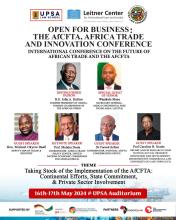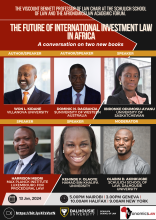Call for Papers: The African Renaissance and International Cultural Heritage Law
The special issue aims to spot the incommensurable potential of African heritage and encourage its local protection for the benefit of local communities and sustainable development. It also aims to highlight the promises and pitfalls of current international cultural heritage law in safeguarding African cultural heritage and harnessing its potential for promoting sustainable development. International cultural heritage law has developed using European conceptions of cultural property protection. As a result, it rarely reflects current African realities. Are there ways to adapt or use the existing legal frameworks to promote cultural protection and sustainable development in Africa? Discussions on alternatives for protecting African cultural heritage at the regional and continental levels, or reviews of any such extant mechanisms, are encouraged. Good practices that African countries can learn from or export to other countries are also welcome. Pertinent case studies are welcome too.

